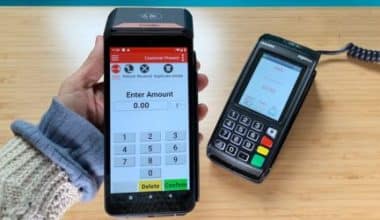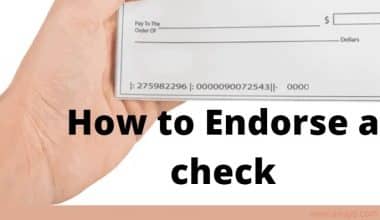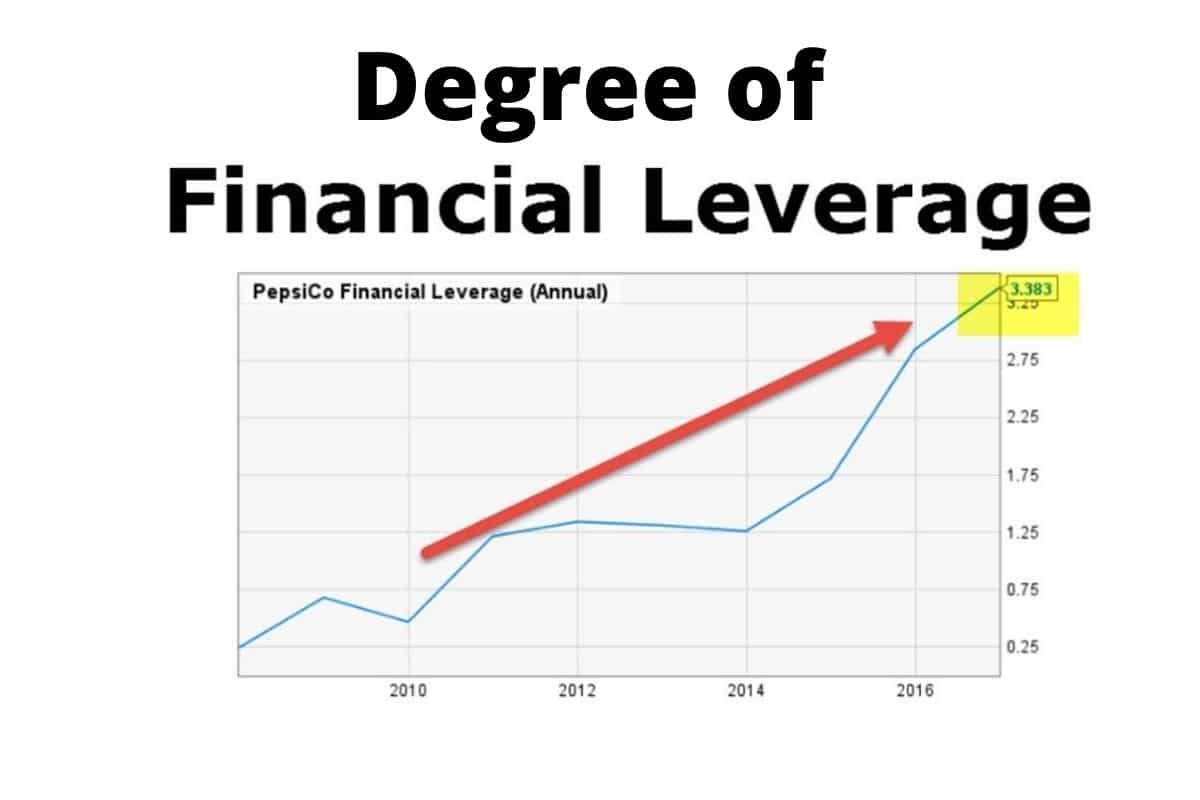Attaining financial freedom is everyone’s greatest goal. But the problem lies in getting there. How do you achieve financial freedom in your current state?
We are burdened with increasing debts, money emergencies, excess expenses, and other problems that hinder us from reaching this goal. And such challenges confront everyone, even the richest amongst us.
Regardless, there are few habits that, if practised every day can set you on the track to financial freedom.
This article highlights all there is to know about financial freedom, its importance, and share some tips to help you achieve financial freedom, including tips that has worked for lots of people.
Let’s get started with the basics.
What is Financial Freedom?
Financial freedom is personal. In general, it is having enough savings, financial investments, and cash on hand to afford the kind of life we want.
In addition, it is a growing a farm of wealth that will allow you to retire or pursue the career you want without being driven by earning a certain amount each year.
Financial freedom means your money is working for you rather than you working for your money. It means that you get to make life decisions without being overly stressed about the financial impact because you are ready for the rainy day.
Getting to financial freedom isn’t an easy task. And financial freedom doesn’t mean you’re “free” of the responsibility of handling your money properly. It means having complete control over your finances.
Why is Financial Freedom Important?
Financial freedom is important if you want to build wealth because it means living in a place of financial peace. It is the freedom to quit your JOB to do something you love, even if it means being paid less because you have a goal in mind.
When you have financial freedom, you have options. You don’t have to live from paycheck to paycheck because your finances have been taken care of in such a way that it works for you, whether you choose to work right now or not.
In general, the importance of financial freedom cannot be overemphasized, as the more financially free you are, you enjoy the following benefits.
- Peace of mind
- Early retirement
- Live and work on your own terms
- Greater financial security
- Unemployment insurance
- Extra investment power
RELATED ARTICLE: Personal Finance: Basics, Importance, Types, Management ( + Free Softwares)
Financial Freedom Vs Financial Independence
Financial freedom and financial independence are synonymous. In fact, without good knowledge, one can almost use either of the words to describe the other.
So, what is financial independence?
According to Wikipedia, Financial Independence is the state of having enough income to pay one’s living expenses for the rest of one’s life without having to be employed or dependent on others. Income earned without having to work a job is commonly referred to as passive income.
There are many strategies to achieve financial independence, each with its own benefits and drawbacks.
Financial Independence means you can live independently of earned income, maintaining your current lifestyle, and you can never run out of money.
Someone who wishes to achieve financial independence can find it helpful to have a financial plan and budget, so that they have a clear view of their current incomes and expenses, and can identify and choose appropriate strategies to move towards their financial goals. A financial plan addresses every aspect of a person’s finances.
More so, with financial independence, you do not only keep your current lifestyle, you stay in your current lifestyle. People that are financially independent got to that point, by staying below their or equal to their means.
Generally, If a person can generate enough income to meet their needs from sources other than their primary occupation, they have achieved financial independence, regardless of age, existing wealth, or current salary.
Financial freedom on the other hand means you can withstand financial challenges that have little to do with choice. According to Robert Kiyosaki, “Financial freedom is freedom from fear”.
It doesn’t mean you will spend all your money. It majorly means you have enough cash to spend without putting your financial future at risk.
Both financial Independence and financial freedom are worthy financial goals we should all strive to achieve.
Because, while financial independence allows you to be self-insured against a financial catastrophe in case of death, financial freedom allows you to be self-insured against the cost of unexpected expenses.
How To Achieve Financial Freedom
If you are ready to be free from financial fear, and have a lot of choices available to you, here’s how to achieve financial freedom
#1. Learn how to manage money
The first step to achieving financial independence is by learning how to manage your money. You won’t achieve anything if you don’t learn how to manage your money. Instead, you’ll find yourself wondering where your money went at the end of every month.
More so, financial freedom doesn’t happen by living from paycheck to paycheck. Ensure you have planned every dollar before you spend it. If you consistently overspend or underspend in certain areas, you can always adjust the amount in each category.
Budgeting is a very important part of achieving financial freedom, but it doesn’t just end there. Even when you get to the level of financial freedom, you still need a plan. Or you’ll soon get out of financial freedom.
In general, it doesn’t happen overnight. Learning how to manage your money is the first step.
READ ALSO: Student Finance: Grants, Loans, Applications (+ How to Start Guide)
#2. Organize your finances
Once you have gradually started to learn how to manage your money, the next step to achieving financial freedom is to organize your finances.
You may have made some financial mistakes in the past. It’s all right. Now, you know better, it’s time to organize it before you start building wealth.
This means that if you have debit like credit cards, student loans or car loans, it’s time to figure out a way to get it sorted out.
This is because, while you are still in debt, your paychecks belong to someone else. So, if you want to achieve your goal and get to financial freedom, you need to have your full income at your disposal, not left overs from paying credit card bills and student loan payments.
More so, paying off your debt helps you to lay a foundation to build long lasting wealth. Make sure you have enough saved up before you start tackling your debt. You don’t want to settle your debts and become worse than you started, do you?
So, while budgeting, you’d realize that you may have extra cash left. Throw it into settling all your debts until you are debt free.
Of course, settling your debts is hard, but it feels beter when you have all your income to yourself at the end of the month.
#3. Make the right career choice
You do know that your biggest wealth-building tool is your income right? So when it comes to choosing a career, there are a lot of things involved.
There’s no need to remain at a job that doesn’t support your financial growth simply because of an attachment. Leave that place and get a job that supports your goal of financial security. It’ll make the journey to financial freedom a lot easier.
So, while making career choices, here are a few questions to ask yourself.
- Do you enjoy the work? If you don’t, there’s no point spending your career on a job you hate.
- Can you grow? Are there opportunities to move up the career ladder?
- Where do you want to be in 10 years? Will this job help you get there?
- Do the benefits support your goals of financial freedom?
- Is there income-earning potential?
Answers to these questions will help you make the right career choice. Remember, your choice of career can have a big impact on your long-term financial plan.
#4. Have a Short-term Savings Strategy
If your goal is financial freedom, you need to plan for the unexpected life events that happen to all of us, like medical bills, broken appliances and car repairs. Hence, the need for you to increase your emergency fund to cover three to six months of expenses once you’re out of debt.
Having the cash to cover unexpected life events gives you peace of mind, and is a critical part of your overall financial plan.
Once you have that fully funded savings account, your budget will soon begin to feel more flexible. And you’ll be able to say yes to shopping splurges and specialty lattes with no guilt at all!
Since you’re not taking on debt, you’ll also need a savings plan for big purchases that aren’t emergencies. For example, summer vacation. It’s easy!
Create a line item in your monthly budget and divide the total amount by the months you have to save. You’re not living in debt anymore, and that means you can enjoy your vacation instead of having a credit card bill follow you home.
With a full emergency fund and a plan to cover big purchases in place, you’ll have the financial foundation to start investing.
RELATED ARTICLE: PRINCIPLES OF FINANCE
#5. Learn about Investments
Now that you have started budgeting, and you have a plan for short-term savings, its time to seek the knowledge of a financial advisor who can help you make the most of your long-term investment options.
The good news is the sooner you start investing, the more time your money has to grow. That’s the power of compound interest at work.
Here are some options to consider;
Retirement Savings
Work with your financial advisor to take advantage of the tax-favored retirement accounts that are available to you at work, like your 401(k)or 403(b).
How much should you invest toward retirement? Go for 15% of your income. And if your employer offers an equal contribution to your 401(k), take it! Don’t say no to free money.
According to Dave Ramsey, If you have access to a Roth 401(k) at work with good mutual fund options, great! You can invest your full 15% there. But if you have a traditional 401(k), invest up to the match then invest what’s left of your 15% in a Roth IRA. If you still have part of your 15% left after maxing out a Roth IRA, go back to your 401(k).
Why is a Roth a good idea? When you invest in a Roth 401(k) or Roth IRA, the money you invest grows tax-free. That means you don’t have to pay taxes on it when you withdraw money in retirement. That’s a big benefit you don’t want to miss out on.
College Savings
If you’re already contributing 15% of your income to retirement and you want to start saving for your kid’s college fund, you can start by investing in an Education Savings Account (ESA).
Like a Roth IRA, the money you contribute to an ESA grows tax-free, which means you won’t pay taxes on it when it’s used to cover college expenses.
According to the IRS, you can contribute up to $2,000 per year for each child in an ESA. Income limits do apply, and your investing pro can help you find out if those impact you.
The good thing about this is that you are helping your kids avoid student debt, thereby setting them up for financial freedom.
Real Estate Investments
Investing into your home is something that should be part of your financial freedom plan. That’s why its important to make wise choices about the kind of home you purchase, and how you intend to finance it.
If you buy a good home investment, then its value will continue to increase over time.
Once you start investing 15% of your income into your retirement accounts, you should use the extra money to pay off your home mortgage.
Remember, to achieve financial freedom, you have to get rid of all your debts, home mortgage included.
Also, don’t get involved with any rental properties until your house is paid for. Even then, ensure you can afford to pay cash for the property you are wiling to deal with.
READ ALSO: Sources of finance: A foolproof list for small businesses and entrepreneurs
Taxable Investments
Before you hop on taxable investment, ensure you are taking advantage of all the tax-favored accounts you can, like your workplace 401(k) and IRAs.
Then if you are ready to move into taxable accounts, work with your financial advisor to choose good growth stock mutual funds with a history of above-average performance.
Note that when you invest in tax favored accounts, you’ll pay taxes on the money you invest. In addition, you’ll pay taxes on capital gains and qualified dividends.
Financial Freedom Formula
When it comes down to calculating your financial freedom, its pretty easy. The first step is to get an excel sheet or something similar, then list out your expenses.
Add up all your expenses, and you have your financial freedom number.
It means you’d have to earn more than your expenses in passive income before you can say you are financially free.
“Financial security and independence like three-legged stool resting on savings, insurance and investment”._ brain Tracy
NB: Passive Income is money that comes whether you are actively working or not. Robert Kiyosaki said, “The moment you make passive income and portfolio income a part of your life, your life will change. Those words will become flesh”.
What does financial freedom feel like?
Real financial independence is the absence of financial stress. You may live independently and stress-free when you have financial freedom. Because you are confident in your ability to cover the cost of the fix, you don’t even blink when a problem arises. You have no financial impact.
What is the 5-30 rule?
The rule indicates that you should spend up to 50% of your income after taxes on commitments and necessities that you really must fulfill. 20% should go to savings and debt payments, and 30% should go to whatever else you might want. That leaves the remaining half.
What does financial freedom mean?
The ability to live comfortably for the rest of one’s life and take care of all of one’s responsibilities without depending on a job is the definition of financial independence. A long-term financial plan’s ultimate objective is to achieve that.
What is the golden rule of finances?
The Golden Rule argues that during an economic cycle, the government will only borrow money to finance investments and not ongoing expenses. In plain English, this means that, generally speaking, during the ups and downs of an economic cycle, the government should only borrow money to finance investments that will benefit future generations.
How do you know if you have financial freedom?
You and your family should be able to maintain your current standard of living with the passive income you receive from your investments. You’ll know you’ve achieved financial freedom when you’re not working for money anymore.
Books on Financial Freedom
Achieving financial freedom requires proper guidelines from successful entrepreneurs.
Some of these guidelines can be seen in books by bestselling authors.
Below are some books to read to guide you in achieving financial freedom.
#1. Wisdom from Rich Dad, Poor Dad: What the Rich Teach Their Kids About Money–That the Poor and the Middle Class Do Not! by Robert Kiyosaki and Sharon Lechter
This book explodes the myth that you need to earn a high income to become rich – especially in a world where technology, robots, and a global economy are changing the rules.
Teaches why acquiring and building assets can be more important to your future than the big paycheck – and the tax advantages investors and business owners enjoy.
#2. Financial Freedom: A Proven Path to All the Money You Will Ever Need by Grant Sabatier
Money is unlimited. Time is not. Become financially independent as fast as possible.
Financial Freedom is a step-by-step path to make more money in less time, so you have more time for the things you love.
It challenges the accepted narrative of spending decades working a traditional 9 to 5 job, pinching pennies, and finally earning the right to retirement at age 65, and instead offers readers an alternative: forget everything you’ve ever learned about money so that you can actually live the life you want.
SEE ALSO: Public finance: Definition, Scope, Importance, Types and Examples (+ free pdfs)
#3. Financial Freedom with Real Estate Investing By Michael Blank
Discover the (surprising) secret to lifelong financial freedom with real estate investing. Real estate has always been a powerful tool for investing, and many people believe that a single-family home investment strategy will help them achieve their goals.
However, the true path to financial freedom using real estate is found in apartment buildings.
#4. The 9 Steps to Financial Freedom By Suze Orman
The 9 Steps to Financial Freedom is the first personal finance book that gives you not only the knowledge of how to handle money, but also the will to break through all the barriers that hold you back.
Combining real-life recommendations with the motivation to overcome financial anxieties, Suze Orman offers the keys to providing for yourself and your family.
#5. MONEY Master the Game By Tony Robbins
With advice about taking control of your financial decisions, to setting up a savings and investing plan, to destroying myths about what it takes to save and invest, to setting up a “lifetime income plan,” the book brims with advice and practices for making the financial game not only winnable—but providing financial freedom for the rest of your life.
Conclusion
The state of financial freedom is one that everyone needs to achieve because its benefits are endless. I hope this article you basic knowledge about financial freedom.
All the best!.
PS: Don’t have a business plan yet? Or you’re still a bit confused about the idea of a business plan? Don’t worry, we got you! Click on the button below to have access to our list of workable business plans. These plans have helped a lot of business owners in over 10 countries of the world.







2 comments
I am on my way to financial freedom. Book recommendations are great!
I like what you said about preparing for retirement. We probably don’t have any savings for me and my wife to retire. We’ll have to talk to an advisor to help with our investments.